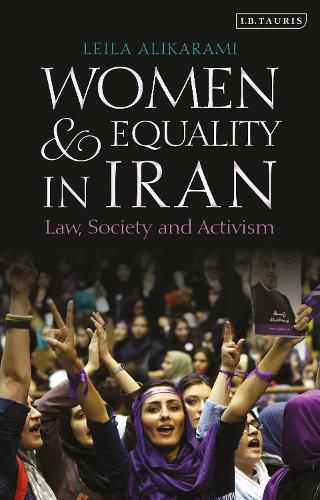Readings Newsletter
Become a Readings Member to make your shopping experience even easier.
Sign in or sign up for free!
You’re not far away from qualifying for FREE standard shipping within Australia
You’ve qualified for FREE standard shipping within Australia
The cart is loading…






Iran’s continued retention of discriminatory laws stands in stark contrast to the advances Iranian women have made in other spheres since the Revolution in 1979. Leila Alikarami here aims to determine the extent to which the actions of women’s rights activists have led to a significant change in their legal status. She argues that while Iranian women have not yet obtained legal equality, the gender bias of the Iranian legal system has been successfully challenged and has lost its legitimacy. More pertinently, the social context has become more prepared to accommodate legal rights for women. Highlighting the key challenges that proponents of gender equality face in the Muslim context, Alikarami attempts to ascertain the causes of Iran’s failure to ratify the CEDAW and questions whether and to what extent interpretations of Islamic principles prevent Iran from doing so. Applying feminist legal theory to contemporary Iran, Alikarami’s approach re-evaluates the underlying principles that have shaped the struggle for equal rights between the sexes.
$9.00 standard shipping within Australia
FREE standard shipping within Australia for orders over $100.00
Express & International shipping calculated at checkout
Iran’s continued retention of discriminatory laws stands in stark contrast to the advances Iranian women have made in other spheres since the Revolution in 1979. Leila Alikarami here aims to determine the extent to which the actions of women’s rights activists have led to a significant change in their legal status. She argues that while Iranian women have not yet obtained legal equality, the gender bias of the Iranian legal system has been successfully challenged and has lost its legitimacy. More pertinently, the social context has become more prepared to accommodate legal rights for women. Highlighting the key challenges that proponents of gender equality face in the Muslim context, Alikarami attempts to ascertain the causes of Iran’s failure to ratify the CEDAW and questions whether and to what extent interpretations of Islamic principles prevent Iran from doing so. Applying feminist legal theory to contemporary Iran, Alikarami’s approach re-evaluates the underlying principles that have shaped the struggle for equal rights between the sexes.